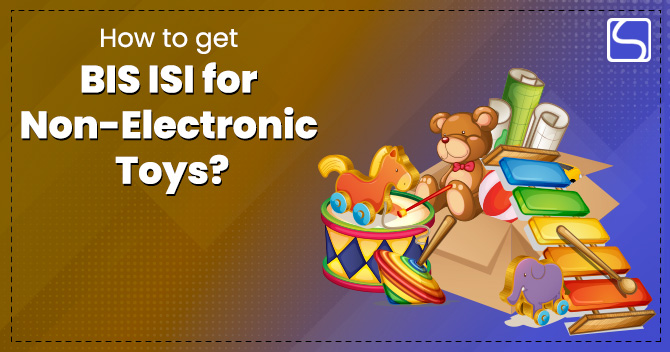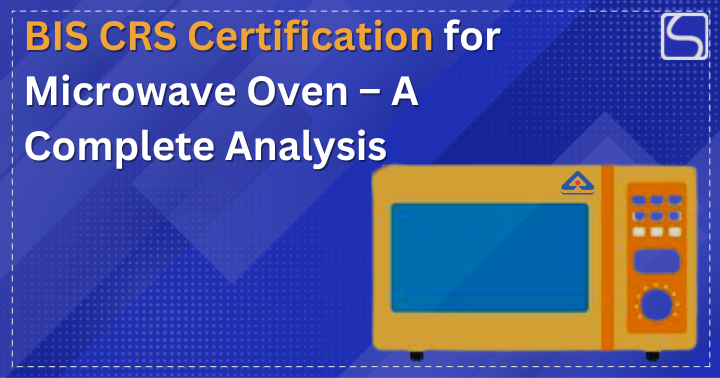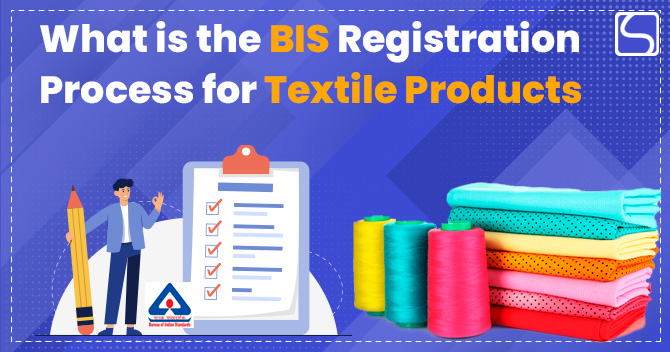How to get BIS ISI for non-electronic toys?

Ganesh Nair | Updated: Aug 06, 2022 | Category: BIS
Toys are not just objects that children use to entertain themselves. Toys help enhance children’s creativity and imagination, assist in strengthening their motor skills and play a huge role in developing their cognitive abilities. Keeping in mind the importance of toys in the lives of young children in the country, the government has decided to make the BIS certification mandatory for companies that produce toys for children aged fourteen and below. In this article, we shall discuss How to get BIS ISI for non-electronic toys?
Government-mandated BIS ISI for toys through the Toys (quality control) order of 2020. All the toys sold in India must carry the BIS ISI mark on non-electric/electric toys. If the manufacturers fail to comply with this order, they shall be liable for fines and imprisonment. This order shall also be applicable to toys being imported into India, and the foreign manufacturers also need to obtain BIS certification from the appropriate authority.
Table of Contents
BIS ISI Standards for non-electronic toys:
| S.no | Type | Standard |
| 1. | Safety Aspect Related to Mechanical and Physical properties | IS 9873 (Part 1):2019 |
| 2. | Flammability | IS 9873 (Part 2): 2017 |
| 3. | Migration of Certain Elements | IS 9873 (Part 3): 2017 |
| 4. | Swings, slides,- other toys for Indoor and Outdoor Family Domestic use | IS 9873 (Part 4): 2017 |
| 5. | Requirements and Test Methods for Finger Paints | IS 9873 (Part 7): 2017 |
| 6. | Phthalates Esters in Toys and Children Products | IS 9873 (Part 9): 2017 |
Documents required to obtain BIS ISI for non-electronic toys:
An applicant must possess the following documents before applying for BIS ISI for non-electronic toys:
- A detailed list of raw materials being used
- Documents specifying the location of the factory
- Description of the Manufacturing process
- Complete Details of the Machinery at the factory
- Details of the Plat layout
- Test report of the product generated by the BIS recognised Lab
- Pictures of the product
- Undertakings
- A complete application form.
The process to obtain BIS ISI for non-electronic toys:
It is mandatory for both domestic and foreign manufacturers to obtain the BIS ISI for non-electronic toys. However, the process for both differs a bit. The domestic manufacturers must file the application through the Manak portal, and the Foreign manufacturers must submit the application at the BIS portal. The rest of the procedure would be as follows:
- STEP 1:The applicant must create a login portal at the Manak/ BIS portal as applicable.
- STEP 2:The applicant has to select the Indian standard “IS 9873 (Part 1): 2019[1]“ – this standard is for non-electric toys.
- STEP 3: In the next step, the applicant must provide all the details such as the factory locations, details of personnel, details of raw materials, the manufacturing process etc.
- STEP 4: The applicant will have to provide information about test facilities. The manufacturers who want to obtain BIS ISI for non-electronic toys must comply with the requirements of IS 9873 (part1):2019. They should ensure that they have in-house testing facilities, as mentioned in the Scheme of Inspection and Testing (SIT)
- STEP 5:Now, the applicant must provide all the specifications of the products and materials.
- The applicant also needs to attach pictures of the product. Along with this, pay the minimum marking fee, which is of 50%.
- STEP 6:Once the above-mentioned steps are completed, the portal generates an application number. The applicant must keep an eye on the updates received from it and respond to any queries raised by the BIS timely.
- STEP 7: After this, within a span of 10 days, the BIS shall confirm a date for factory inspection. However, for any reason, if the BIS rejects the application, then the manufacturer would have to make a fresh application again.
- STEP 8: BIS officials shall conduct the factory inspection, and all the quality tests and manufacturing processes must be conducted before the BIS officials themselves. After this, a test report shall be generated.
- STEP 9: if the BIS official is satisfied with the process, he shall collect and sample them according to guidelines. If any tests are required, the official can ask the manufacturer to send the samples to recognised labs within 24 hours and send the proof of delivery.
- STEP 10:In the end, all the processes are complied with, and if the BIS is satisfied with the results of the test. A license shall be created, and the manufacturer shall be granted a certificate for license upon payment of the requisite fee.
Fee to be paid for certification of BIS ISI for non-electronic toys:
| S.no | Purpose | Fee |
| 1. | Application Fee For BIS Certification | ₹ 1000 |
| 2. | License Fee- (payable at grant of license) | ₹ 1000 |
| 3. | Renewal Fee | ₹ 1000 |
| 4. | Annual Marking Fee | 50% of the marking fee |
Validity of certificate for BIS ISI for non-electronic toys:
The BIS ISI Certification for non-electronic toys is valid for a period of one year. The certification can be renewed at a payment of ₹ 1000 and the requisite marking fee.
Conclusion:
Toys as a commodity is consumed by young children, therefore it is important that the government takes the initiative to ensure that the Indian market is circulated with toys that are of good quality and safe to use for children. The ISI certification shall ensure that those harmful and sub-standard products don’t enter the Indian market and do not cause any hindrance to the wellbeing of children in India.














